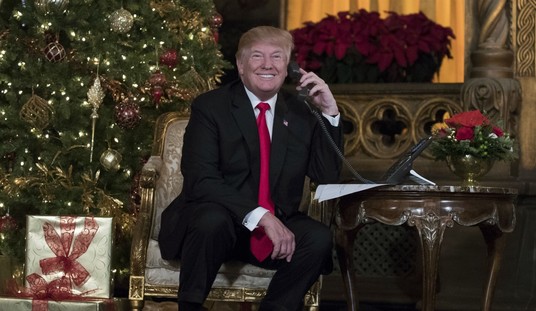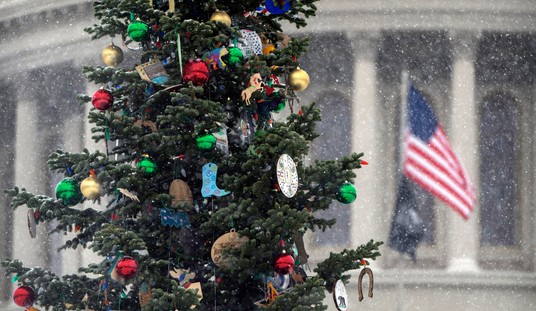The 2016 New Hampshire primary results look like two political parties in a race to self-destruct. New Hampshire was bad news for Hillary Clinton, and worse news for Marco Rubio. Let’s run through what we learned with the final vote totals in, focusing mainly on the Republican side:
1. Republican Turnout Remains High: More voters cast ballots in the Republican than the Democratic primary in New Hampshire for the first time – in a year when both parties had contested primaries – since 2000, not coincidentally the last time Republicans took the White House from the Democrats and the last time a Republican won New Hampshire. Donald Trump also became only the second candidate ever to win 100,000 votes in a Republican primary in New Hampshire, although unlike the top 3 candidates in Iowa he did not set a record, that still being held by John McCain in 2000 (who beat the guy who went on to become President):

By contrast, Bernie Sanders shattered the previous record for the most votes for a Democrat in the New Hampshire Primary, held ironically by Hillary Clinton, who drew 17,000 fewer votes in New Hampshire than she did eight years ago against Barack Obama. I leave it to you to consider what that says about Hillary ’08, Hillary ’16, Sanders, Obama and New Hampshire voters.
We can also now update the Iowa/New Hampshire turnout chart, from which you can see that the spike in turnout in New Hampshire was not as dramatic as in Iowa (unsurprisingly, given New Hampshire’s historically high primary turnout):

If the turnout in New Hampshire is again reflective of about 75% of the vote for the GOP nominee in November, that would yield about 379,000 votes, enough to defeat Barack Obama’s 2012 vote total in New Hampshire (but not his 2008 vote total). But of course, we’re a long way off from that.
Interestingly, the exit polls had the Republican primary electorate pegged at 55% Republicans and 42% independents, and while that is a much higher share of independents than we will see in just about any later state (with the possible exception of Massachusetts), it is also down from 2012, when the split was 49/47. That probably bodes well for Republican enthusiasm.
2. New Hampshire Has Lost Its Damn Mind: 535,070 people voted yesterday, and 47.1% of them voted for either crazy old socialist Bernie Sanders or crazy old billionaire buffoon Donald Trump. It’s hard to come up with a more vigorous rebuke to the entire American political system than that. One wonders if some wealthy (male) eccentric will seize on these results to enter the New Hampshire US Senate race as a third-party candidate, given that it currently pits the very sane and conventional incumbent Republican Senator Kelly Ayotte against the very sane and conventional sitting Democratic Governor Maggie Hassan.
3. Donald Trump Will Be With Us A While: Unlike in Iowa, Trump’s supporters turned out in New Hampshire – without much of a ground game – more or less as projected in the polls. New Hampshire’s high-turnout traditions helped: according to the exit polls, only 15% of the voters were first-time GOP primary voters (only slightly more than in 2012), and Trump’s 34% of the prior primary voters was in line with his 36% share of first-time voters (John Kasich got 19% of first-time GOP primary voters, some of whom may have been previous Democratic primary voters, but in general most candidates got similar shares of both). We’ll see how that holds up in subsequent states, but his opponents are well-advised to focus on thinning the field and holding him closer to 25% than 35%.
In that vein, it’s worth noticing that the moderate/establishment candidates (Kasich, Jeb, Christie and Fiorina) divided 38.4% of the vote between them, which rises to 48.9% if you add in the “establishment-friendly” conservative Rubio – a bigger bloc than the Trump voters even in an ideal state for Trump.
4. Marco Rubio Has Problems: Rubio obviously had a bad night, for a variety of reasons. The headline was ugly debate moment with Chris Christie on Saturday, which killed any chance for him to get late momentum as he had in Iowa, where he finished first among voters who decided on the day of the caucus and first among voters who decided in the final few days. But expectations may have been too high from the beginning – New Hampshire is really not that much more favorable ground for Rubio (as a guy who is first and foremost a Christian social conservative, economic supply-sider and foreign policy neoconservative) than it is for Ted Cruz. Overall, the social-conservative candidates (Cruz, Rubio, Carson and the now-departed Huckabee and Santorum) got 24.7% of the vote in New Hampshire compared to 62.8% in Iowa.
Cruz was mostly content to fish in the waters of the like-minded – just a quarter of New Hampshire voters self-identify as evangelical Christians, and Cruz trailed Trump just 27-23 among them, while finishing in single digits among the other 75% of the electorate. But Rubio was tasked with getting outside his own natural base and wresting largely secular establishment Republican and moderate independent votes away from a trio of governors who had camped out in the state while Rubio was roaring down the stretch in Iowa. New Hampshire’s vast, moderate-leaning independent bloc might well prefer Rubio to Hillary or Bernie in November, but they simply did not warm to him when offered a choice of three legitimate moderate/establishment candidates. Among Republicans, Rubio tied Ted Cruz with 13% of the vote, not that great but only a point behind Kasich and three ahead of Jeb. Overall, the three governors plus Fiorina drew 37% of the Republican vote. But among independents, Rubio got 10% to Kasich’s 18 and Jeb’s 11, as the three governors plus Fiorina drew 41%.
The pattern is even starker if you divide voters by self-identified ideology. Rubio got 13% of “very conservative” voters, compared to 15% in Iowa, and Bush did the best of the governors at just 8% of that vote. Rubio suffered much more among “somewhat conservative” voters, getting 12% after winning them at 29% in Iowa; Kasich actually beat him with these voters 14-12, which partly shows that Rubio should have done more to define Kasich but also suggests that the term “somewhat conservative” means something different in New Hampshire than Iowa. But he got clobbered, with just 8% of the vote, with moderates, and they made up 27% of the electorate compared to 14% in New Hampshire, while Very Conservative voters were 27% instead of 40%. So while Rubio’s appeal fell off among some of the voters he needed to win, he was also hurt by facing an electorate less inclined to his kind of candidate.
Rubio also had some notable age splits – he finished a strong second (19%, as compared to 7% for Jeb) among voters in their 30s, and tied for second with Cruz at 15% among voters 18-24, but he got buried in the high-turnout age 45-64 age bracket, finishing a dismal sixth with just 8% of the vote (interestingly, Trump’s worst group was the age 65+ voters, who went Trump 29, Kasich 19, Jeb 15). That may suggest that the Jeb/Christie attacks on Rubio’s youth and relative inexperience hurt – and that he should probably do more in the future to stress his experience and accomplishments in the Florida House (Rubio has actually spent more years in elective office than Jeb and Christie put together).
Notably, only 12% of voters said that a candidate who could win in November was their top priority, an alarmingly low number for Rubio even though he won 30% of those voters (compared to 16% for Kasich and 9% for Jeb). The fact that Trump won 32% in that group suggests how out of step voter perceptions of electability are with the polls, which regularly show that Trump would be by far the most unpopular major-party nominee with the general public in the history of polling. And Rubio got just 5% of the 28% of voters who said their top priority was “can bring needed change,” compared to 20% who picked John Kasich, a man who was first elected in the 1970s.
Rubio came away from New Hampshire having accomplished the very bare minimum: Christie and Fiorina dropping out narrows the “establishment lane” to the point where he no longer has so many targets that it would be futile to attack them all. But where he had wanted to clear that lane for himself so he could start bidding for conservatives in South Carolina, he will now find himself fighting a two-front war. His opportunity to see the field fall into a natural path to victory has passed; if Rubio is going to have a path to win now, he will have to blaze it through people determined to stand in his way.
5. For Jeb and Kasich, Hard Money Will Have To Talk: If we take a step back and combine the popular votes from the first two states, the picture that emerges has Trump well out front, with Cruz as the ‘second front-runner’ (having won a state and done about as well as he could have hoped in New Hampshire), then Rubio just 2.5 points and one delegate behind Cruz, then Kasich as a guy who has notched a top-two finish, then Jeb in single digits and Ben Carson as the last straggler (leaving aside Jim Gilmore, who got fewer votes in New Hampshire than Birther conspiracy theorist Andy Martin) now that Christie and Fiorina are out. The debate criteria announced by CBS for next Saturday in South Carolina give the top five an automatic entry for their finishes in Iowa and New Hampshire, and we’ll see if Carson can meet the polling criteria (he does as of today, but could fade as voters start focusing on winners). So despite all the hype about Rubio’s weak appeal to New Hampshire voters, his overall combined first-two-states showing is much closer to Cruz’s than Kasich’s or Jeb’s.

Thus, while Jeb and Kasich can do a happy-dance over beating Rubio, their chances of winning the nomination remain pretty much zero. The Bushes have traditionally had more problems in New Hampshire than Iowa, but Jeb still fell pretty far short of the old Bush vote:

It will be harder for Jeb and Kasich to capitalize on their ‘momentum’ from New Hampshire, for two related reasons even apart from the differing terrain in the next few weeks of states. Number one, neither can put in the retail time that Kasich in particular spent in tiny New Hampshire for months – there just isn’t enough time. And money is a problem. Kasich’s campaign has very little of it; I won’t repeat the whole analysis that streiff did of the campaigns’ filings last week on the state of their finances through the end of 2015, but Kasich had just $2.5 million in the bank compared to $10 million for Rubio and $18 million for Cruz, and had raised $3.1 million in the fourth quarter and spent it all, where Rubio brought in $14 million and Cruz $20 million. And unlike Rubio and Jeb, Kasich doesn’t have a well-funded SuperPAC. His campaign has no means with which to compete further unless he suddenly discovers a huge untapped well of donors excited by the unexcitement of his campaign and optimistic about him matching Jon Huntsman’s 2012 showing in New Hampshire.

Jeb is known to have a lot more money because of his SuperPAC, but there are two problems. One, he cannot possibly sustain his spending-to-votes investment: his SuperPAC burned through $15 million in Iowa, most of it negative ads aimed at Rubio, to no effect whatsoever – basically, he spent $25,000 a vote – and spent a colossal $36.1 million in TV ads in New Hampshire, again over a thousand dollars a vote. With just ten days until the South Carolina primary and a much bigger electorate (Rick Santorum got over 100,000 votes finishing a distant third in 2012, and third is Jeb’s highest aspiration), it just won’t be possible to continue the assault on Rubio at such volumes, let alone hit Kasich as well. But it gets worse: campaigns do not live on SuperPACs alone, they need hard dollars to fund the campaign itself or it will have no staff. And Jeb five weeks ago was down to $7.6 million on hand after raising $7.1 million and spending $9.8 million in the fourth quarter:

His burn rate in Iowa and New Hampshire was probably worse than that, and with almost no small-dollar donors, Jeb has few new people to ask for money (his big donors are mostly maxed out, which is why they finance the SuperPAC instead). Beating Rubio in New Hampshire by 1,300 votes may have slowed his death spiral a bit, but his campaign will be eating its seed corn in South Carolina and Nevada before it gets to Super Tuesday, and that could complicate even Jeb’s stubborn insistence on hanging around just to thwart his old protege.
6. Ted Cruz Is The Favorite: I continue to believe that Trump will sooner or later be beaten as the party reasserts itself, given that Trump is both an anti-establishment and an anti-conservative candidate. While Rubio has potentially the biggest upside in terms of his base within the party, New Hampshire exposed the potential downsides in his jack-of-all-trades appeal, and he faces structural challenges now that Cruz doesn’t face. This could be a long and unpredictable race, but if you had to put money down today to pick the nominee, put it on Ted Cruz.














Join the conversation as a VIP Member